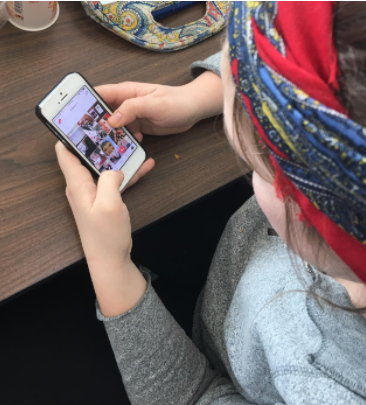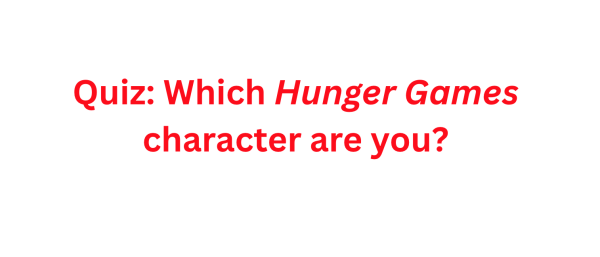Direct communication diminishes through social media

Megan Soyka, freshman, scrolls through her Instagram feed.
Fifteen years ago, teenagers wouldn’t have thought to keep a Snapchat streak. But today, not many, especially teens, can escape social media. It continues to change the way people communicate and introduces a world where anyone can do anything behind a screen. According to a technology review written by The Massachusetts Institute of Technology, “today, social networking sites are the preferred platforms for all kinds of activities, both business and personal, and sociability has dramatically increased — but it is a different kind of sociability.”
These virtual lives that allow people to talk with just the click of a button close teens off from face-to-face communication. According to Steven Strogatz, Cornell University mathematician, “social media sites can make it more difficult for us to distinguish between the meaningful relationships we foster in the real world, and the numerous causal relationships formed through social media.”
As direct communication diminishes, people begin to adapt to a screen. Important social skills can be lost throughout the way and can put two people in a nonverbal context. Even with emojis, miscommunications arise and emotions are misunderstood. They don’t provide the same reaction as a conversation in person would.
According to an article written Brandwatch Blog, there are 2.3 billion active social media users, social media users have risen by 176 million in the last year and one million new active mobile social users are added every day. The numbers don’t lie. As social media expands, more and more people are cut off from actual conversation.
In today’s modern world, it almost seems impossible to unplug. Society makes it seem that without social media, there’s no way to keep up with what’s going on. But what happens if someone disconnects? I understand that in some cases, these are people’s jobs. But with teens, surrounding yourself with family and friends is much more important. People can interact and connect in a much deeper way than they ever could through a phone screen.
“Observation is a key to learning and to gaining new insights. If your head is always down, you are missing the world around you and what it might teach you,” Leigh Steere, co-founder of Managing People Better, LLC, said. What Ms. Steere and so many other people are trying to stress is that getting rid of social media and looking up every once in awhile can really benefit you. I believe that taking breaks and learning to directly communicate can help people in the long-run. Updating Facebook statuses or Tweeting shouldn’t be people’s number one priority Instead, people should be getting involved in the real world and having conversations with the people right in front of them.

Sasha Shapsis is a senior at Homestead, and this is her third year on Advanced Publications. In room 405, she’s busy indexing yearbook, taking photos,...





